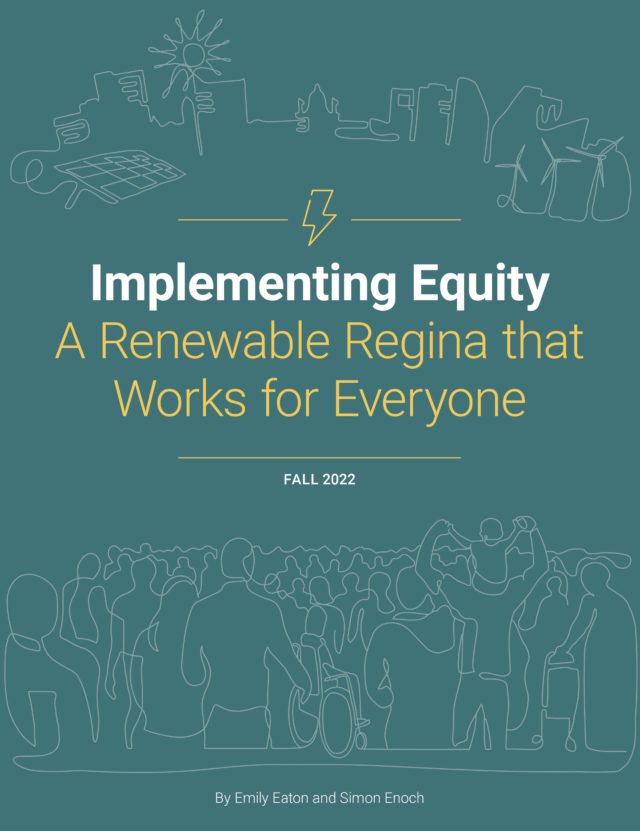Implementing equity: a renewable Regina that works for everyone
Published by:
David Suzuki Foundation and partners
Authored by:
Simon Enoch,
Emily Eaton
Partners:
Canadian Centre for Policy Alternatives,
University of Regina Faculty of Arts
Climate solutions, Cities climate change, decarbonization, Saskatchewan, renewable energy, energy, greenhouse gas emissions, policy and regulation, human health and wellbeing
As cities around the world lead on climate action, recognition is growing that success often hinges on whether policies designed to address climate change also promote equity. The release of Regina’s Energy and Sustainability framework in March 2022 appears to have taken equity concerns seriously. In many respects, it serves as a model for the incorporation of equity as a cross-cutting consideration in municipal climate plans. But the more challenging work lies ahead. While cities are getting better at including the rhetoric of equity in their planning documents, operationalizing and implementing equity into actual policy has proven more difficult.
In this report, we explain what climate equity is and how it became seriously incorporated into the city’s Energy and Sustainability Framework (ESF) and suggest what other cities can do to duplicate Regina’s success. In Part 2 we explore what Regina can learn from other jurisdictions that have successfully incorporated equity into actual city-level climate policy.
